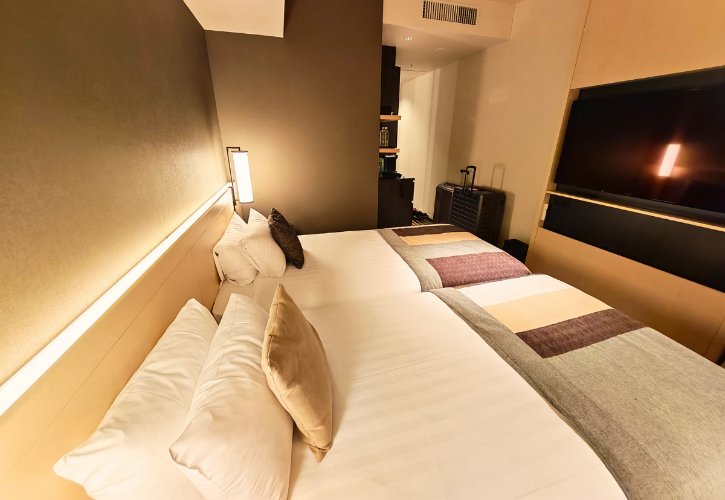
Checking into a hotel is always exciting, but before you unpack, it’s a good idea to take a quick look around your room.
A simple check helps you feel more comfortable and makes sure everything is ready for your stay.
It only takes a few minutes, and you’ll be glad you did it.
Here are 10 things you should always check in your hotel room first. 😊
1. Test All Lights, Outlets, and the Television
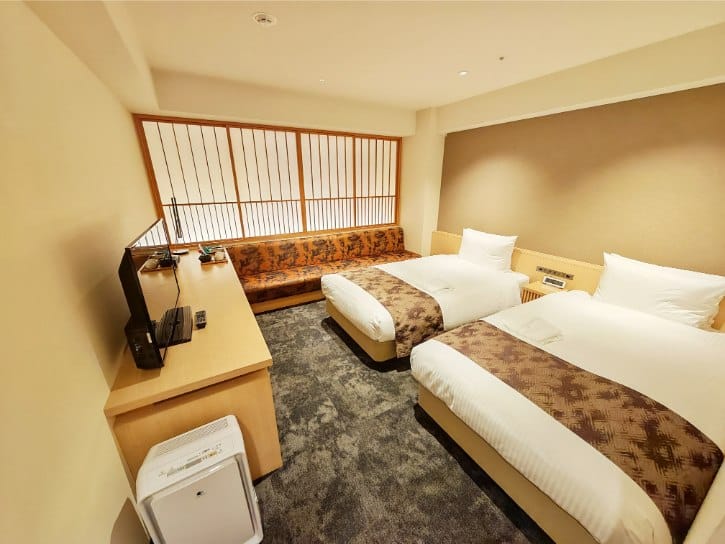
Switch on every light in the room, including lamps and ceiling lights.
Don’t forget bedside lamps and bathroom lights since these are often overlooked.
Plug your phone or laptop into each outlet you plan to use. Some outlets might be dead or controlled by a wall switch.
Many hotels also require you to insert your key card in a slot near the door for electricity, so check this as soon as you arrive.
Turn on the TV, flip through channels, and check the volume. Make sure the remote has working batteries.
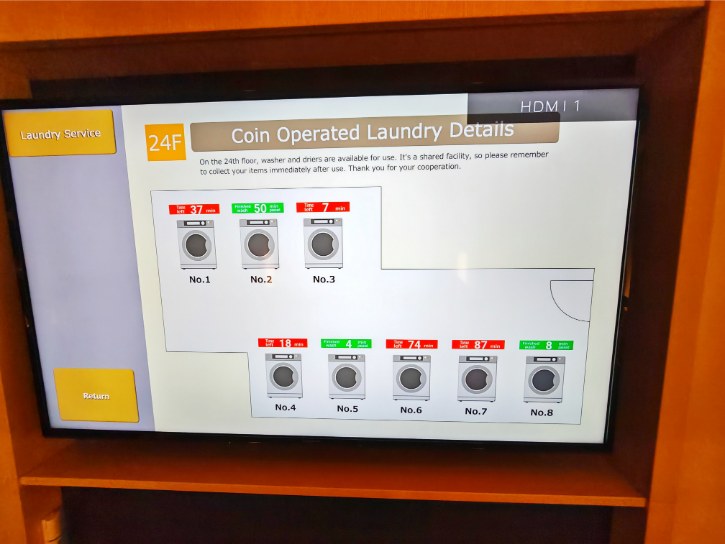
In some hotels, especially in Japan, the TV also shows extra details such as coin laundry availability or hotel services.
This is very useful if you plan to wash clothes during your stay.
If you’re traveling in winter, also check if a humidifier is provided. Run it for a few minutes to make sure it works, since dry air in winter can make rooms uncomfortable.
If you’re traveling internationally, bring a universal adapter and USB hub so you can charge multiple devices without trouble.
Call the front desk immediately if outlets don’t work, bulbs are out, or the TV fails. It’s easier to solve now than after unpacking.
2. Adjust and Test the Thermostat or Air Conditioning
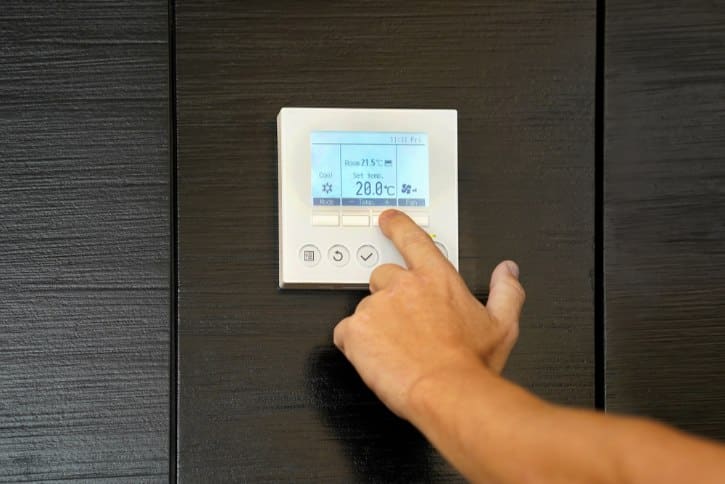
Set the thermostat to your preferred temperature and wait a few minutes.
Check if the room actually cools or warms to match the setting. Many thermostats aren’t accurate, so the display may not reflect the real feel.
Run the AC or heater for at least 10 minutes after check-in.
If it doesn’t work properly, ask the front desk for extra bedding, a fan, or even a different room before bedtime.
3. Inspect Plumbing: Shower, Toilet, Sink, and Bathtub
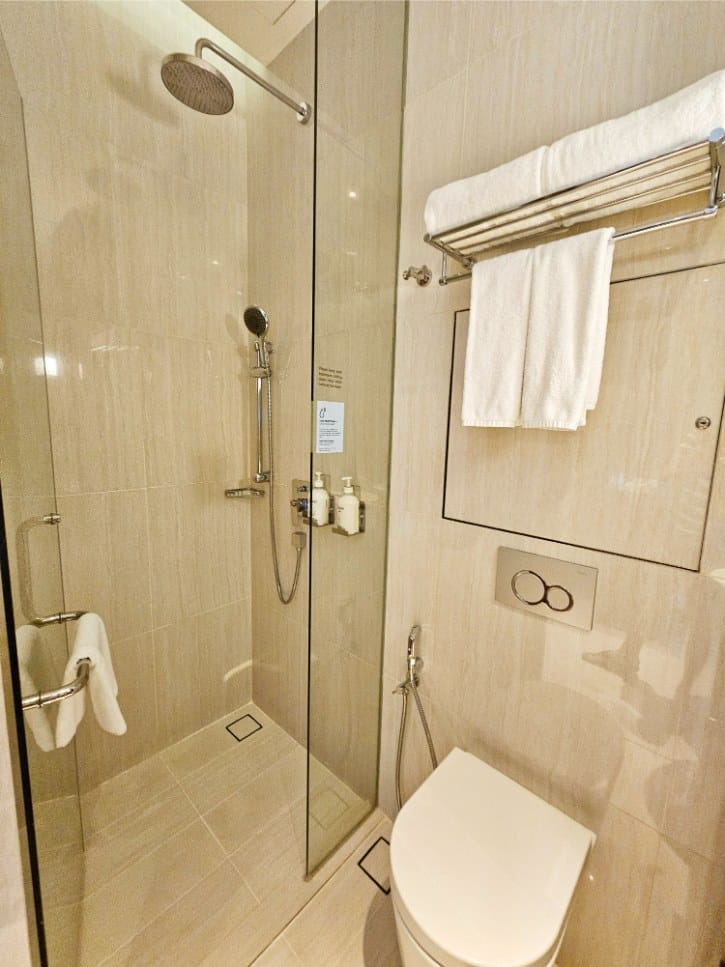
Turn on the shower to test both hot and cold water. Make sure it heats up quickly and has steady pressure.
Flush the toilet to check that it’s strong and doesn’t keep running.
At the sink, test both taps and watch the drainage. A slow drain can be a nuisance during your stay.
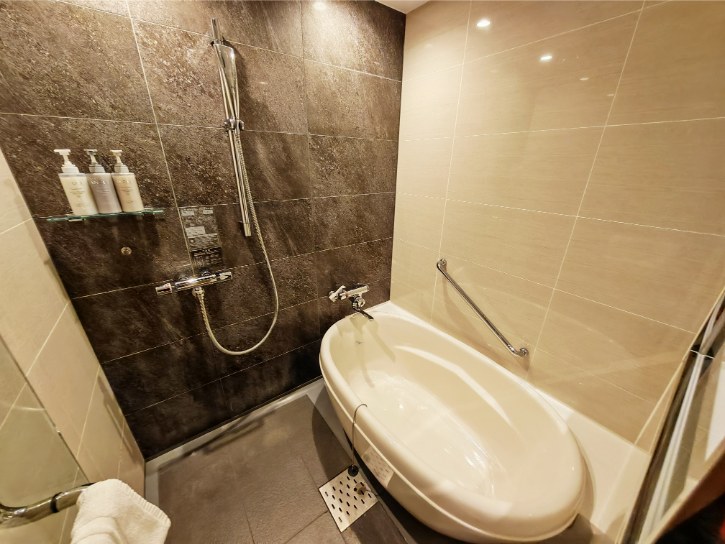
If you plan to use the bathtub, test the stopper to confirm it seals properly and drains well afterward.
Look for signs of poor cleaning such as stray hairs, mold, or stains.
If the water runs only cold, the pressure is weak, or cleanliness is bad, request another room immediately.
4. Check Towels, Bath Mats, and Toiletries
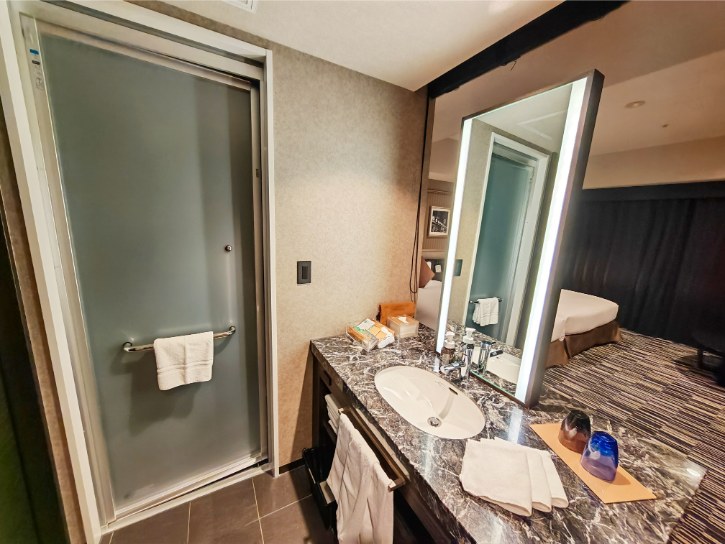
Count the towels in your room. For a double or twin bedroom, you should have at least two bath towels, two hand towels, and a bath mat.
Make sure they are clean and fresh, not damp or stained. Look for a non-slip bath mat to step on after your shower, since slippery floors can be dangerous.
Expect basic toiletries like soap, shampoo, and conditioner. Some hotels also provide extras like lotion, shower caps, or cotton buds.
Many now use refillable bottles in the shower instead of small plastics.
If anything is missing, call reception right away. Most hotels keep extra kits like toothbrushes or razors for guests.
5. Inspect the Bed for Cleanliness and Bedbugs
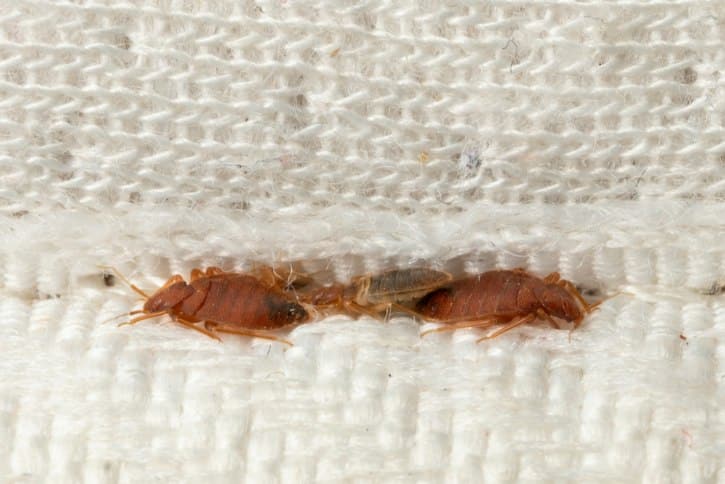
One of the first things you should do is check the bed.
Bedbugs often hide in mattresses and headboards, so spotting the signs early can save you from major problems.
Pull back the sheets at the corners of the mattress and take a close look.
Check for black dots, rust-colored stains, tiny bugs, or shed skins along the seams and near the headboard. These are common signs of bedbugs.
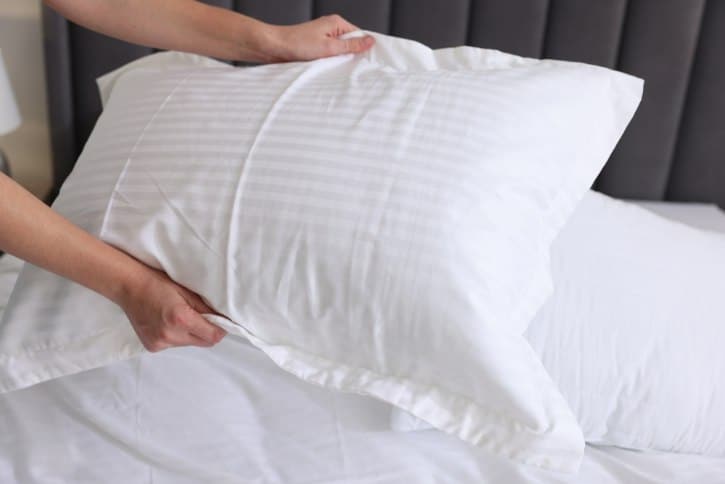
Sheets and pillowcases should also look freshly washed, with no stains or stray hairs, and pillows should smell clean, not musty.
Bedbugs can get onto clothing and into suitcases quickly, leading to an infestation and a nightmare scenario.
If you see any suspicious signs, keep your luggage zipped shut and ask the front desk for a new room immediately.
As a precaution, always use the luggage rack instead of putting bags directly on the bed.
6. Secure Doors, Locks, and Balcony Access
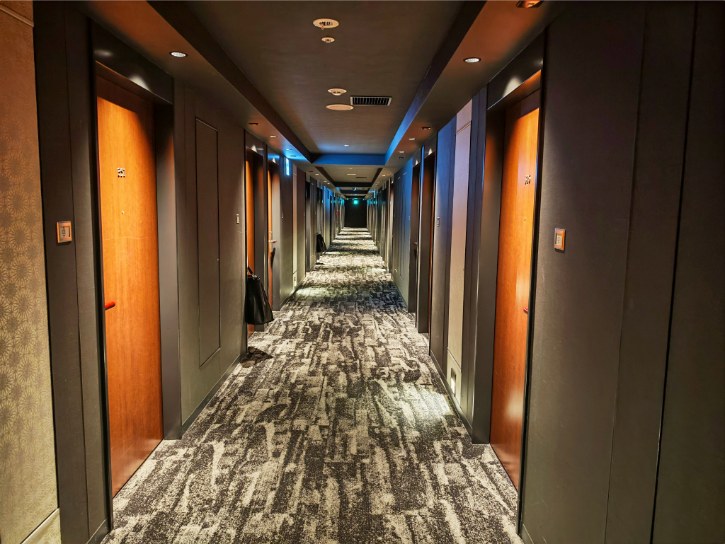
Check that the main door’s deadbolt and privacy latch or chain work properly. Always confirm they align and lock securely.
Look through the peephole to make sure it’s clear and untampered. Cover it with tissue for extra privacy if you prefer.
Test the in-room safe before storing valuables by locking and unlocking it with your own code.
If your room has connecting doors, make sure they are locked on your side.
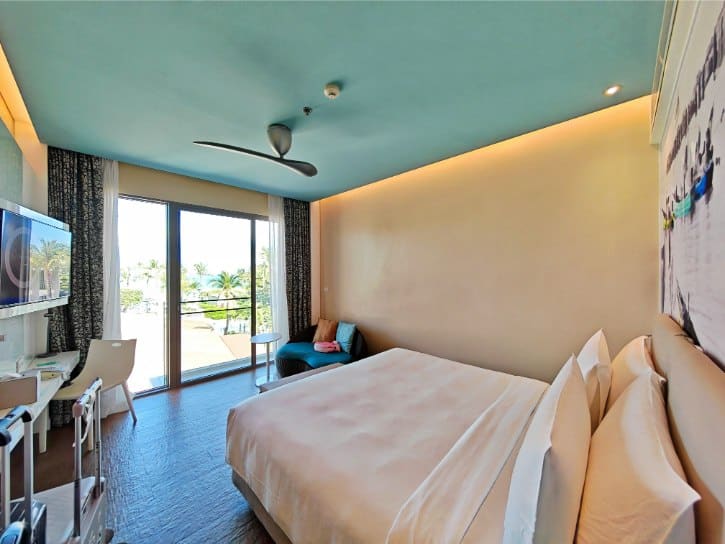
For rooms with balconies, check that sliding doors close and lock firmly. Even on higher floors, keep them locked at all times.
Windows should also latch securely to avoid drafts, noise, or safety issues if you’re traveling with children.
7. Check the Curtains or Roller Blinds for Privacy and Light Control
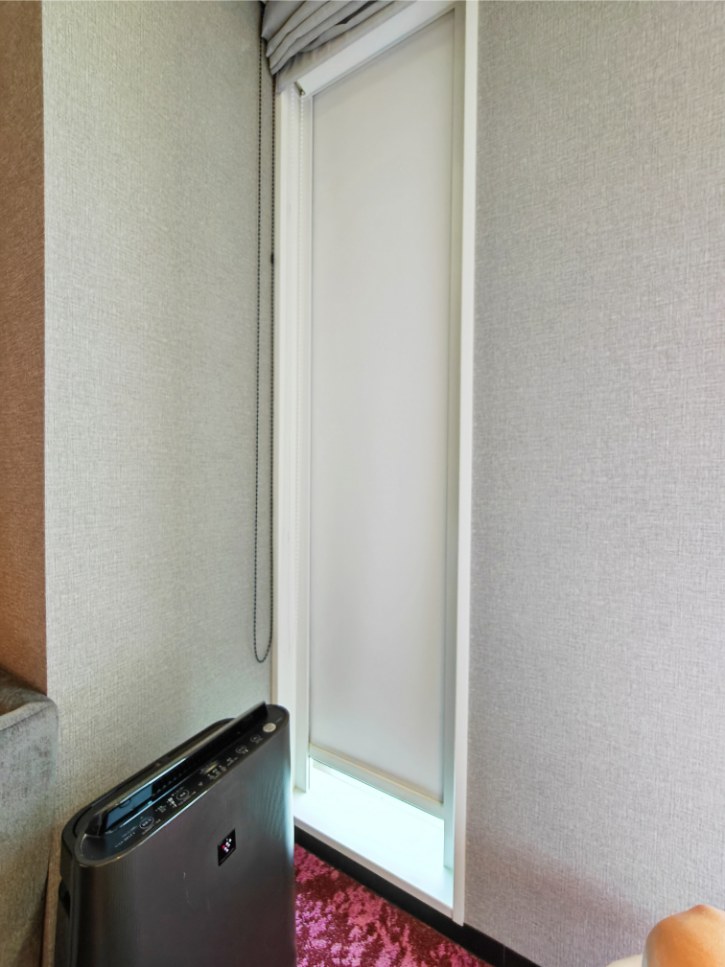
Light leaks and lack of privacy can disturb your rest, so test the curtains or blinds as soon as you arrive.
Close them fully and look for gaps where light shines through.
Blinds should roll smoothly without getting stuck. I once stayed in a Kyoto hotel and found the roller blinds wouldn’t close completely.
Luckily, I discovered the problem before unpacking my luggage, which I kept locked, because the hotel had to send a repairer to fix it.
If you run into the same issue, ask the front desk for help right away. An eye mask can also be handy if outside light still gets in.
8. Test the Kettle Before Using It
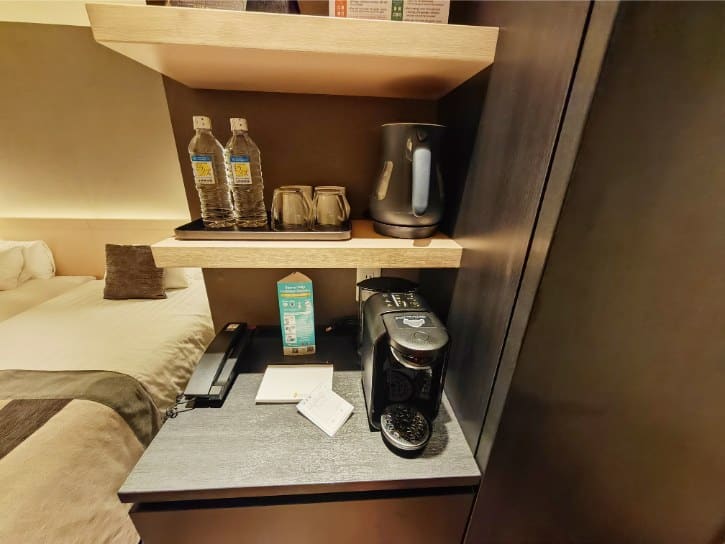
A kettle is one of the most useful items in a hotel room, especially for families.
Always plug it in and boil water at least once before using it to make sure it works properly and is clean inside.
This is very handy if you’re traveling with a baby or young children who need warm water for milk.
It also comes in handy for simple meals.
Like in Japan, where instant noodles are very popular, having a working kettle means you can easily prepare a quick meal in your room without going out.
If the kettle doesn’t work or looks dirty inside, ask the front desk for a replacement.
9. Connect to Wi-Fi Safely
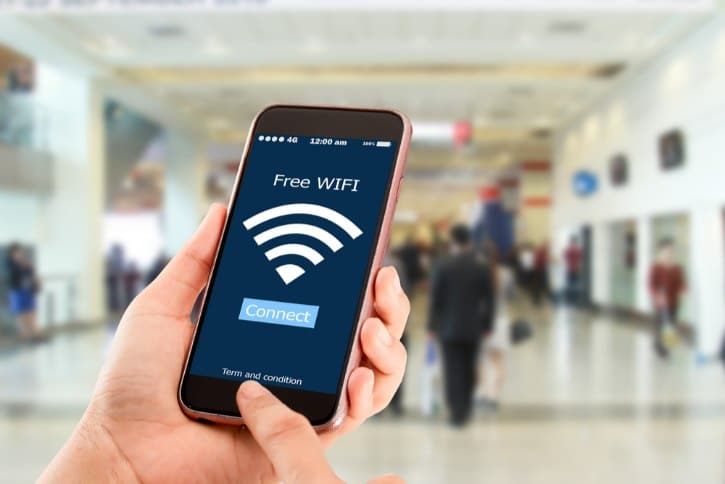
Log onto the official hotel Wi-Fi network and complete any login steps.
Always remember that hotel Wi-Fi is public, which means it’s not fully secure.
Using a VPN adds a layer of safety by protecting your personal data and keeping your online activity private.
If the signal is weak in your room, ask for a room closer to the router or request a Wi-Fi booster.
10. Evaluate Noise Levels and Room Location
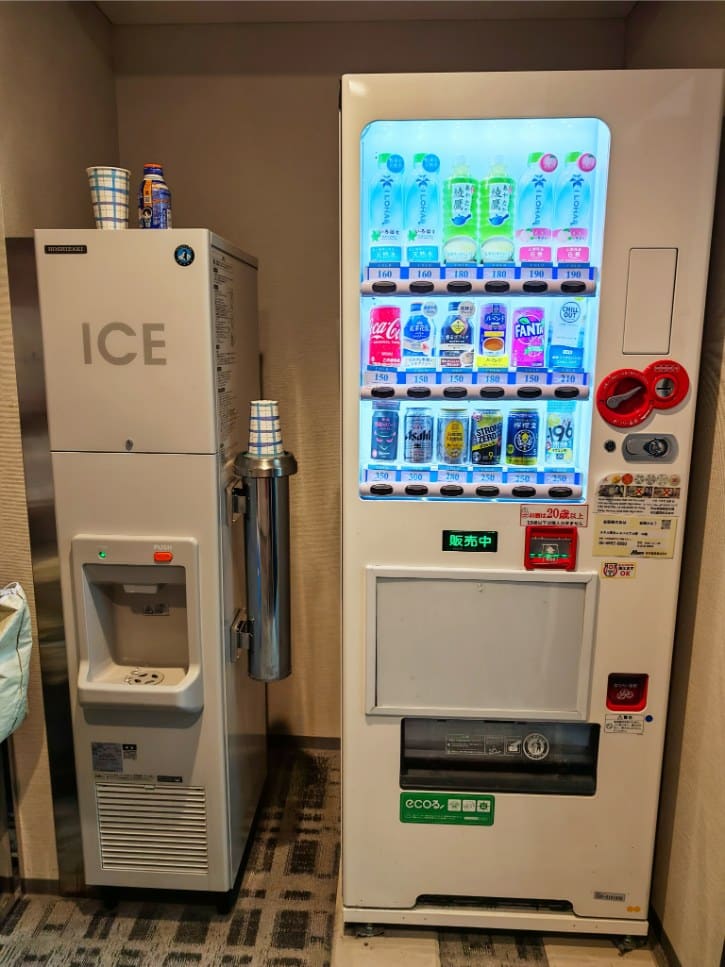
Noise can ruin your sleep, so test it before you settle in.
Stand quietly in the room and listen for sounds from the hallway, especially if you’re near elevators, stairwells, or ice machines.
Open the window to check outside noise from traffic, bars, or pools. Lower floors usually pick up more noise, while higher ones are quieter.
If noise is an issue, request a corner or high-floor room as soon as possible.
If the room you booked is at a fixed price and higher floors are not available, you can still reduce noise by choosing a room away from elevators and busy hallways.
Earplugs or a white noise app are also helpful backups for a quieter night.

